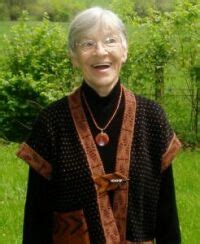A Quote by Martin Buber
Feelings dwell in man; but man dwells in his love. That is no metaphor, but the actual truth. Love does not cling to the I in such a way as to have the Thou only for its " content," its object; but love is between I and Thou. The man who does not know this, with his very being know this, does not know love; even though he ascribes to it the feelings he lives through, experiences, enjoys, and expresses.
Related Quotes
The problem of reconciling human suffering with the existence of a God who loves, is only insoluble so long as we attach a trivial meaning to the word "love", and look on things as if man were the centre of them. Man is not the centre. God does not exist for the sake of man. Man does not exist for his own sake. "Thou hast created all things, and for thy pleasure they are and were created." We were made not primarily that we may love God (though we were made for that too) but that God may love us, that we may become objects in which the divine love may rest "well pleased".
Feuerbach ... recognizes ... "even love, in itself the truest, most inward sentiment, becomes an obscure, illusory one through religiousness, since religious love loves man only for God's sake, therefore loves man only apparently, but in truth God only." Is this different with moral love? Does it love the man, this man for this man's sake, or for morality's sake, for Man's sake, and so-for homo homini Deus-for God's sake?
It is one step, and a giant one, to see clearly and participate in the love that flows between the persons of the Trinity, but even here, God is seen as the object of his own love. It is yet another step to realize that God is beyond all subject and object and is Himself love without subject or object. This is the step beyond our highest experiences of love and union, a step in which self is not around to divide, separate, objectify or claim anything for itself. Self does not know God; it cannot love him, and from the beginning has never done so.
As long as a white man does it, it's alright, a black man is supposed to have no feelings. But when a black man strikes back he's an extremist, he's supposed to sit passively and have no feelings, be nonviolent, and love his enemy no matter what kind of attack, verbal or otherwise, he's supposed to take it. But if he stands up in any way and tries to defend himself, then he's an extremist.
If a person is cold and rigid, he feels within himself as if he were in a grave. He is not living, he cannot enjoy this life for he cannot express himself and he cannot see the light and life outside. What keeps man from developing the heart quality? His exacting attitude. He wants to make a business of love. He says, 'If you will love me, I will love you.' As soon as a man measures and weighs his favors and his services and all that he does for one whom he loves, he ceases to know what love is. Love sees the beloved and nothing else.
Does it follow from: 'turn ye' that therefore you can turn? Does it follow from "'Love the Lord thy God with all thy heart' (Deut 6.5) that therefore you can love with all your heart? What do arguments of this kind prove, but the 'free-will' does not need the grace of God, but can do all things by its own power....But it does not follow from this that man is converted by his own power, nor do the words say so; they simply say: "if thou wilt turn,telling man what he should do. When he knows it, and sees that he cannot do it, he will ask whence he may find ability to do it..." 164
Yet the timeless in you is aware of life's timelessness, And knows that yesterday is but today's memory and tomorrow is today's dream. And that that which sings and contemplates in you is still dwelling within the bounds of that first moment which scattered the stars into space. Who among you does not feel that his power to love is boundless? And yet who does not feel that very love, though boundless, encompassed within the centre of his being, and moving not from love thought to love thought, nor from love deeds to other love deeds? And is not time even as love is, undivided and paceless?
Joan was nothing more than a friend. He was not in love with her. One does not fall in love with a girl whom one has met only three times. One is attracted, yes; but one does not fall in love. A moment's reflection enabled him to diagnose his sensations correctly. This odd impulse to leap across the compartment and kiss Joan was not love. It was merely the natural desire of a good-hearted young man to be decently chummy with his species.






































